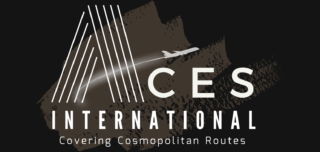Networking is an essential skill in today’s job market. Building genuine connections can significantly influence the path to landing a dream job. Effective networking can open doors that might otherwise remain closed, making it crucial for job seekers to master this art.
Attending industry events, leveraging social media, and reaching out for informational interviews are just a few strategies that can enhance one’s networking approach. By actively engaging with professionals in their desired field, candidates not only gain valuable insights but also increase their visibility to potential employers.
Moreover, cultivating relationships through networking requires both authenticity and persistence. Following up with contacts and offering support in return can establish a cycle of mutual benefit, positioning job seekers favorably as they pursue their career aspirations.
Mastering Your Online Presence
Creating a strong online presence is vital in today’s job market. Two key elements play a significant role: effectively utilizing LinkedIn and engaging on various social media platforms.
Leveraging LinkedIn for Networking
LinkedIn is the leading platform for professional networking. To make the most of it, individuals should ensure their profiles are comprehensive and up-to-date.
Profile Essentials:
- Professional Photo: A clear image helps create a favorable first impression.
- Compelling Headline: Use keywords relevant to your industry to attract the right audience.
- Detailed Experience: Highlight skills and accomplishments in previous roles.
Networking on LinkedIn can be enhanced through participation in groups relevant to your field. Engaging in discussions and sharing insightful articles strengthens connections and showcases expertise. Connecting with industry professionals through personalized messages can also open doors to opportunities.
Engaging on Social Media Platforms
Beyond LinkedIn, social media platforms like Twitter and Facebook can be effective for job seekers. Engaging content helps build a personal brand.
Engagement Tips:
- Share Relevant Content: Post articles and insights related to your industry.
- Follow Industry Influencers: Gain knowledge and connect with thought leaders.
- Participate in Discussions: Commenting on posts can increase visibility and establish credibility.
Using hashtags relevant to job searches can help individuals connect with employers. Social media, when approached strategically, expands networking possibilities. Candidates should remain professional and consistent in their messaging across all platforms.
Strategic Networking and Research
Effective networking combined with thorough research can significantly enhance job seekers’ chances of landing their desired position. Building connections, understanding the job market, and utilizing resources like job boards and fairs are essential components of this process.
Building Professional Networking Connections
Establishing professional relationships is critical to successful job searching. Individuals should start by identifying key industry connections through platforms like LinkedIn or professional organizations.
Engagement is key; attending webinars, workshops, or industry conferences allows for face-to-face networking. Conversations during these events can lead to referrals, which are often more effective than traditional applications.
Consistently reaching out and following up with connections is important. Crafting personalized messages helps to foster genuine interactions. Creating a calendar to track these engagements can ensure timely follow-ups and maintain connections.
The Role of Research in Job Seeking
Researching the industry and potential employers is vital for any job seeker. This includes understanding company culture, recent developments, and the skills in demand. Job seekers should utilize tools such as company websites, news articles, and social media to gather relevant information. Insight into a company’s mission and values can provide a competitive edge during interviews.
Moreover, assessing which companies are hiring can help focus job-search efforts effectively. Identifying trends and potential opportunities ensures targeted applications and preparation, demonstrating a genuine interest in potential employers.
Utilizing Job Boards and Job Fairs
Job boards are useful tools for job seekers to discover available positions. Websites like Indeed, Glassdoor, and LinkedIn aggregate job listings and allow users to filter searches according to specific criteria.
Job fairs offer additional benefits by providing direct access to recruiters. Attending these events allows for immediate interaction, where applicants can ask questions and convey interest in positions directly.
Preparation for job fairs can enhance effectiveness. Job seekers should research companies attending and prepare targeted questions. Bringing multiple copies of resumes and preparing an elevator pitch can greatly enhance first impressions during these events.
Navigating Job Opportunities
Successfully navigating job opportunities requires attention to detail in crafting resumes, engaging with hiring managers, and utilizing informational interviews. Each aspect plays a critical role in securing the desired position.
Crafting a Compelling Resume
A strong resume captures attention within seconds. It should highlight relevant experience, skills, and achievements.
- Focus on Achievements: Use specific metrics to quantify success. For example, “Increased sales by 20% in six months” is more impactful than stating daily responsibilities.
- Tailor Content: Customize each resume to fit the job description. Incorporating keywords from the job listing can help in passing Applicant Tracking Systems (ATS).
- Format Properly: Use clear headings, bullet points, and consistent fonts for easy readability. A clean, organized layout enhances professionalism.
Effectively Engaging with Hiring Managers
Building connections with hiring managers can significantly increase the likelihood of receiving job offers.
- Research the Company: Understanding the company’s culture and values allows for tailored conversations. This alignment can set a candidate apart.
- Utilize Professional Networks: Reach out via LinkedIn or professional associations. A personal introduction is often more effective than a cold application.
- Prepare Insightful Questions: Engaging hiring managers with thoughtful questions about their needs or challenges shows genuine interest and initiative.
Maximizing Informational Interviews
Informational interviews can provide valuable insights and open doors to job opportunities.
- Identify Industry Contacts: Reach out to professionals in the desired field. Use existing networks or platforms like LinkedIn to find connections.
- Prepare an Agenda: Make a list of questions focusing on career paths, skills needed, and industry trends. This helps in conducting a structured and informative conversation.
- Follow Up: Send a thank-you note expressing appreciation for their time and insights. Maintaining this relationship can lead to future job openings or referrals.
The Follow-Up Process
Effective follow-up strategies can make a significant impact in the job search journey. Timely communication helps reinforce personal connections and keeps candidates top of mind for potential opportunities.
The Art of the Follow-Up After Interviews
Following up post-interview is essential. Candidates should aim to send a thank-you email within 24 hours. This email should express gratitude for the opportunity, reference specific discussion points from the interview, and reiterate interest in the position.
A concise subject line, like “Thank You for the Opportunity,” grabs attention. The body can be structured as follows:
- Opening: A brief expression of thanks.
- Body: Mention a highlight from the interview and reiterate qualifications.
- Closing: A positive statement about future communication.
Tailoring each email to reflect genuine engagement demonstrates professionalism and enthusiasm.
Maintaining Personal Connections for Future Opportunities
Networking extends beyond immediate job applications. Establishing and nurturing personal connections can lead to future opportunities. Candidates should maintain contact with industry professionals, former colleagues, and mentors.
Methods for staying connected include:
- Regular Check-Ins: A brief message every few months can keep relationships warm.
- Sharing Relevant Articles: Sending articles of interest shows thoughtfulness and expertise.
- Attending Networking Events: Participating in industry events strengthens ties and expands networks.
Utilizing social media platforms like LinkedIn can also facilitate these connections. Engaging with posts and offering constructive feedback can enhance visibility and rapport.

